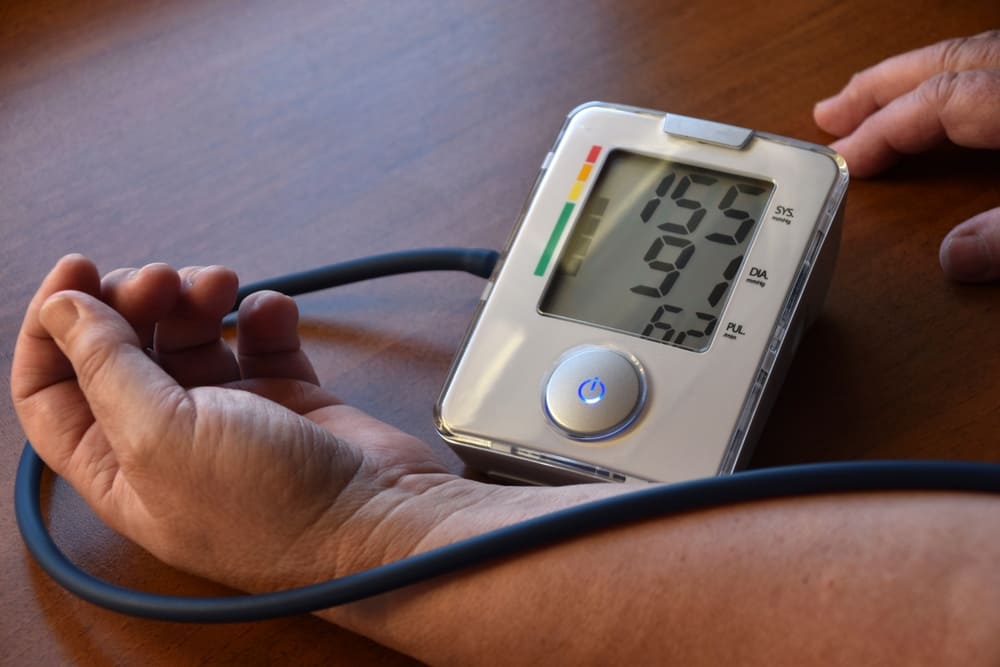


Aren’t you surprised that so many individuals with obesity go on to develop hypertension? So, how does losing weight impact blood pressure, and could it be a key to managing this silent but potentially serious condition?
Hypertension, commonly known as high blood pressure, is a significant health concern affecting millions worldwide. It is an issue that often goes unnoticed, yet its consequences can be severe, including an increased risk of heart disease, stroke, and other cardiovascular problems.
One of the most important aspects of hypertension is its deep connection with body weight.
In this blog post, we will look into the relationship between hypertension and obesity – and provide a detailed understanding of how controlling weight can play a vital role in managing blood pressure.
Obesity and hypertension share a close and concerning relationship.
According to Harvard Health Publishing, excess body fat, mainly when concentrated around the abdomen, often leads to several physiological changes that contribute to elevated blood pressure. Obesity can induce ‘insulin resistance’ (a condition where the body’s cells become less responsive to insulin). This resistance prompts the body to produce more insulin.
When the insulin in the bloodstream rises, it activates a complex hormonal pathway (known to medicos as the ‘renin-angiotensin-aldosterone system’) that plays a central role in blood pressure regulation. The overactivation of this system can result in the constriction of blood vessels and an increase in blood pressure.
In addition, body fat (called ‘adipose tissue’) secretes inflammatory substances that increase hypertension. To mitigate these risks, maintaining a healthy weight through a balanced diet and regular exercise is crucial in preventing and effectively managing hypertension.
Weight loss serves as a highly effective strategy for managing hypertension.
According to Nadia B. Pietrzykowska, MD, FACP, writing in Obesity Action, even a modest weight loss of 5-10% of one’s total body weight can significantly lower blood pressure levels.
The benefits of weight reduction in hypertension management are twofold. Firstly, losing weight decreases the overall workload on the heart, as less effort is required to pump blood through the circulatory system. Secondly, it improves cardiovascular health by positively impacting cholesterol levels and insulin sensitivity.
Achieving and maintaining a healthy weight is often best achieved through lifestyle changes. These include adopting a balanced diet that focuses on nutrient-dense foods, portion control, and reduced sodium intake, along with engaging in regular physical activity. Such lifestyle modifications play a vital role in both weight loss and the long-term management of hypertension, offering a holistic approach to proactive heart care.

Bariatric surgery is, indeed, for those suffering from acute obesity.
It offers a fairly stringent option for body weight reduction and its associated hypertension. There are procedures like ‘gastric bypass’ and ‘sleeve gastrectomy’ that can bring about substantial weight loss, which, in many cases, leads to the lowering of hypertension.
According to Jens Juul Holst M.D. et al., writing in Surgery for Obesity and Related Diseases, there are many mechanisms behind this effect. Bariatric surgery reduces the size of the stomach and modifies the anatomy of the digestive tract, which can alter hormonal signaling and metabolism. These changes contribute to decreased appetite, improved insulin sensitivity, and weight loss, all of which can positively impact blood pressure.
However, it’s crucial to know that bariatric surgery is not a one-size-fits-all solution. This option should be approached carefully and guided by medical professionals. Factors like the severity of obesity, the presence of other medical conditions, and individual health goals play a role when the doctor decides on bariatric surgery as an obesity management strategy.
Medications and lifestyle changes are the first line of defense.
Lifestyle alterations are things patients themselves can do with minimal medical advice, if the weight loss and hypertension issues are moderate and under control. But the doctor’s word is final when the problems become more serious and medications become necessary.
According to the American Heart Association (AHA), there are several types of antihypertensive drugs, each with its unique mechanism of action. These may include four important ones: diuretics, which cut down blood volume; beta-blockers, which slow the heart rate and reduce the force of heart contractions; ACE inhibitors, which relax blood vessels; and calcium channel blockers, which dilate arteries and lower blood pressure. So, the doctor has many options.
For the right choice of medication, the doctor will assess individual factors such as age, existing ailments, and potential side effects. Regular monitoring and adjustments, if necessary, can further ensure that blood pressure remains under control while minimizing side effects and optimizing overall cardiovascular health.
Weight management is quite central to hypertension control.
According to Jennifer M. Edwards, writing in Healthline, a range of additional lifestyle changes can – and should be – made to maintain healthy blood pressure levels. These can help weight loss efforts and contribute significantly to overall cardiovascular health:

By incorporating these lifestyle modifications into their daily routines, individuals can enhance their efforts in controlling hypertension and limit the risk of associated cardiovascular complications.
Whether it is weight loss or high blood pressure, each individual’s journey is unique, and finding the right combination of strategies is key.
Remember, controlling hypertension isn’t just about numbers – it’s about enhancing overall well-being and safeguarding your heart’s health. Similarly, weight loss isn’t about standing on the scales and worrying each morning – it’s about moderating eating and exercise habits for the long term.
The ultimate goal is to prioritize self-care. Stay heart-healthy.